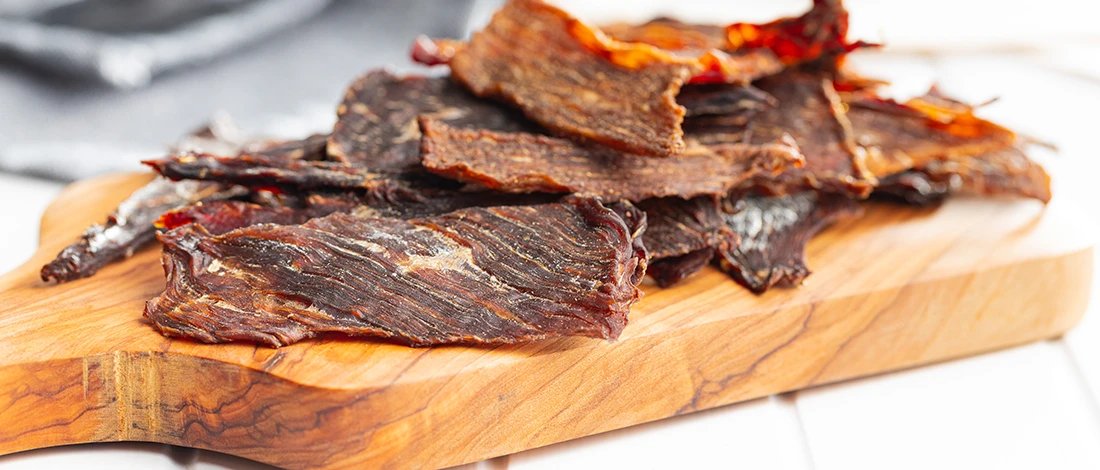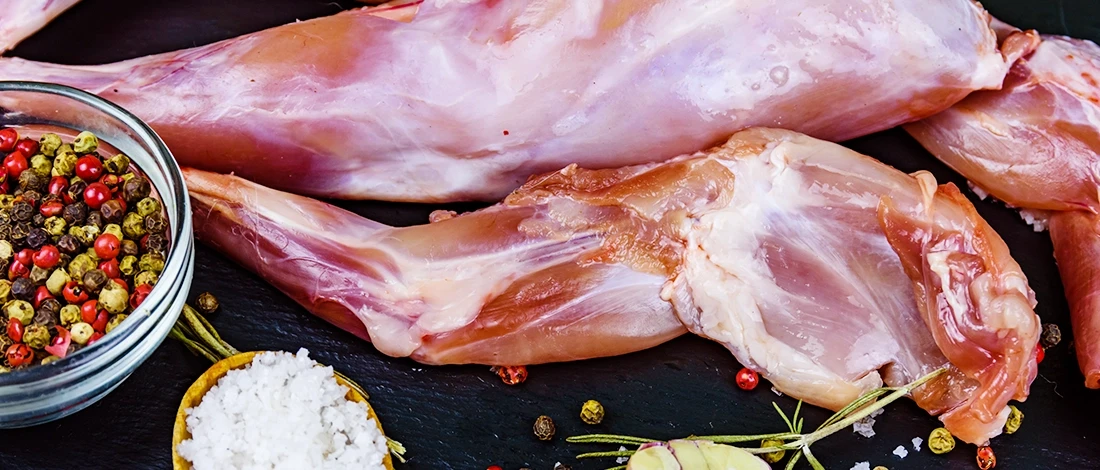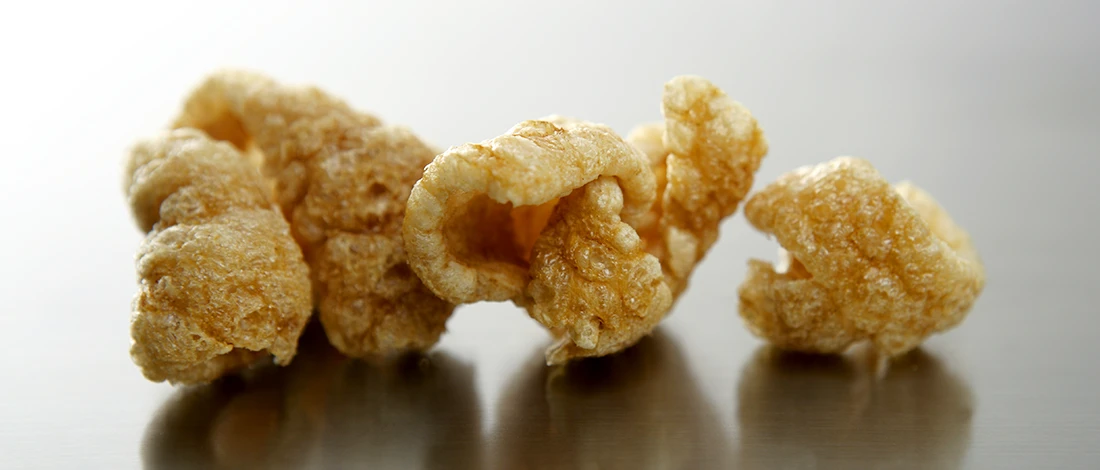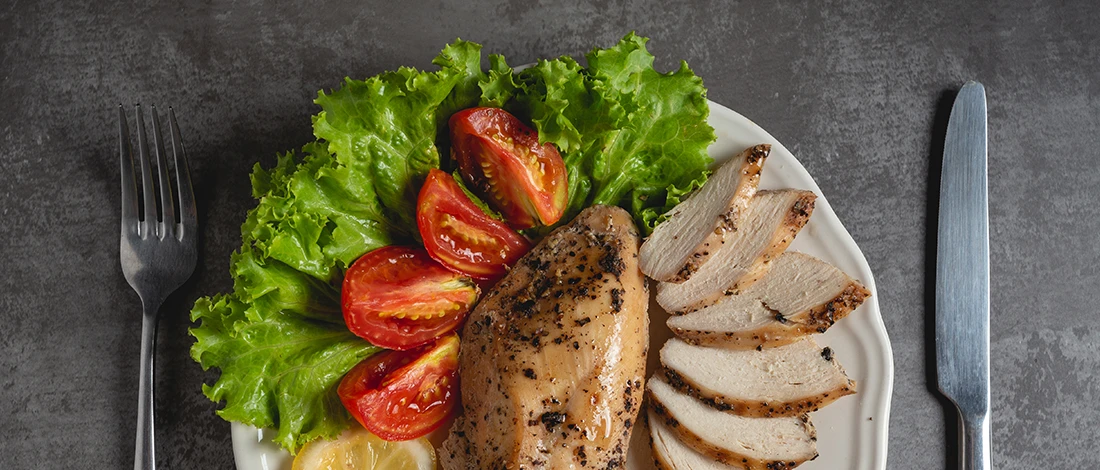Meat has been an essential item in my diet for the past ten years. Recently, I decided to shift to healthier unprocessed meat, and turkey seemed like a great option.
But before I transitioned, I talked to a dietician to find out if it was a healthy addition to my carnivore lifestyle.
Here’s what I’ve discovered.
Quick Summary
- Turkey is healthy as it’s rich in proteins and an excellent source of vitamins and minerals.
- White turkey meat typically contains more proteins and fewer calories compared to more fats and calories in dark meat.
- Fresh turkey contains less sodium content.
Is Turkey a Healthy Meat Option?
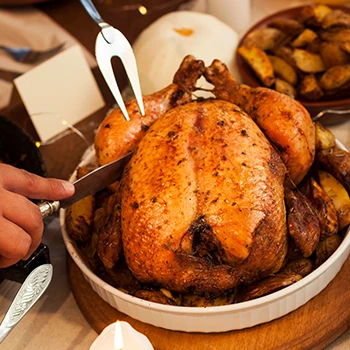
Yes, turkey is a healthy meat option abundant in protein, vitamins, and minerals.
Turkey meat is lean poultry meat obtained from domesticated or wild turkeys.
Native to North America, turkey is usually roasted whole or traditionally served with stuffing and trimmings as the primary dish on Thanksgiving or Christmas tables.
If you’re looking for a reliable source to get your healthy holiday feast, look no further than ButcherBox.
Turkey Nutrition
A 100g portion of turkey meat and skin provides the following:
- 190 kcals/799 KJ
- 30.9g protein
- 10.1g vitamin B
- 7.4g fat
- 2.3g saturated fat
- 2.7g mono-unsaturated fat
- 1.8g poly-unsaturated fat
- 2.4mg zinc
- 17 mcg selenium [1].
Nutritional content varies depending on the cut of the meat. Turkey breast is one of the best sources of white meat since it's rich in muscle and high in proteins.
At the same time, dark meat contains more connective tissue and tends to have more fats and calories.
Furthermore, turkey skin has a very high-fat content with noticeable saturated fat meaning that cuts with skin have more calories than skinless cuts.
4 Health Benefits Of Turkey
Consuming turkey regularly can benefit you in many ways.
1. Rich In Protein
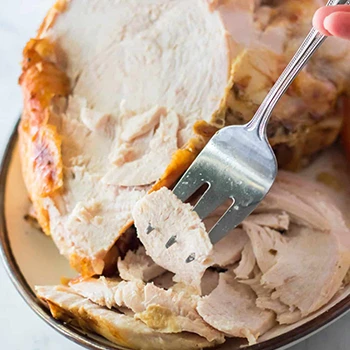
The protein in turkey is of high quality supplying the body with all nine amino acids we need for tissue growth and repair [2].
This makes it an excellent source of protein for those looking to build lean muscle or lose weight.
Turkey contains the amino acid Tryptophan. This amino acid may help support serotonin levels, which promote mood [3].
While its level might be low, it's still a possible benefit of turkey.
"Tryptophan is needed for a wide variety of functions in the body. It is required for metabolic functions that impact mood, memory, visual cognition, and comprehension."
-Trista Best, Registered Dietician
Read More: How Much Protein Is in Deli Turkey?
2. Good Source Of Vitamins And Minerals
Turkey is a great contributor of Vitamins, including vitamins B3, B6, and B12. Our body needs these vitamins to form red blood cells and brain function.
Additionally, its meat is a rich source of zinc and selenium. One study has suggested that higher intakes of mineral selenium may decrease the prostate and colorectal cancer risk [4].
3. Helps To Maintain A Healthy Weight
From a nutrition perspective, a 100g serving contains 190 calories, o grams of carbohydrates, and 7 grams of fat, making it a good choice for people trying to lose weight or maintain their cholesterol levels.
4. Reduces Risk Of Heart Diseases
It is an excellent alternative to red meat, such as ground beef or lamb, since it contains carnitine. Carnitine helps to lower blood pressure and boost heart health by improving blood flow throughout the body [5].
3 Side Effects of Eating Turkey

While its health benefits are wide, there are some long-term side effects that may arise due to overeating.
1. High Sodium in Processed Varieties
Limiting processed turkey in your diet is vital due to its higher sodium content. Sodium is used as a preservative or flavor. Higher sodium content contributes to the risk of cardiovascular diseases and high blood pressure [6].
2. Increased Cholesterol Levels
Consuming too much turkey may increase cholesterol levels, especially if the meat has skin on it. This is because eating turkey with skin significantly increases your fat intake.
I recommend moderating your turkey intake and going for skinless white turkey meat.
3. Allergy
Although turkey allergy is rare, it ranges from mild to severe. Common symptoms such as sneezing, scratchy throat, or swelling around the mouth may be experienced shortly after eating cooked turkey. Ensure that you have no turkey allergy before eating foods with one.
Tips And Tricks For Choosing The Healthiest Turkey

Choosing good turkeys is important because some turkeys available in stores can be heavily preserved with salts.
Here are a few pointers that'll be of help to you:
- Buy fresh skinless turkey breasts: They're leaner and contain high protein and vitamins. This white meat is suitable for those who want to maintain or lose weight.
- Avoid processed turkey products: Limit processed products such as roasted turkey breast, ground turkey, and turkey bacon, as such meats are high in sodium. Even frozen turkey-prepacked burgers can usually contain added salt and preservatives.
- Go for a well-rounded bird: Look for one with a well-rounded breast since it's juicier. Pay attention to flat spots indicating that the meat has been refrozen or thawed. This does not only increase the risk of freezer-burned beef, but it also raises the chances of contracting any food-borne illness.
- Consider organic pasture-raised turkey: They have access to outdoor and are fed a USDA-certified organic diet free of antibiotics, synthetic fertilizers, or pesticides. Pasture-raised poultry has more Omega-3 than factory-processed turkey [7].
Related Articles:
FAQs
Why Is Turkey Healthier Than Chicken?
Turkey is healthier than chicken because it contains fewer calories and moderately high protein compared to chicken. They also differ slightly in cholesterol levels and sodium, as chicken is somewhat higher in both.
Is Turkey Good For Muscle-Building?
Yes, turkey is good for muscle building. It contains more than enough proteins that provide the amino acids required by the body for energy production and to build lean mass.
Is the White Part Of Turkey The Healthiest?
Yes, the white part of the turkey is the healthiest. It's enriched with high-quality proteins and fewer fats and calories.
References:
- https://www.nutritionix.com/food/turkey
- https://www.ncbi.nlm.nih.gov/pmc/articles/PMC4462824/
- https://www.ncbi.nlm.nih.gov/pmc/articles/PMC4728667/
- https://www.ncbi.nlm.nih.gov/pmc/articles/PMC3179524/
- https://www.researchgate.net/publication/335374753_
- https://www.cdc.gov/heartdisease/sodium.htm
- https://pubmed.ncbi.nlm.nih.gov/18809866/


